The Last Revolution (Part 19)
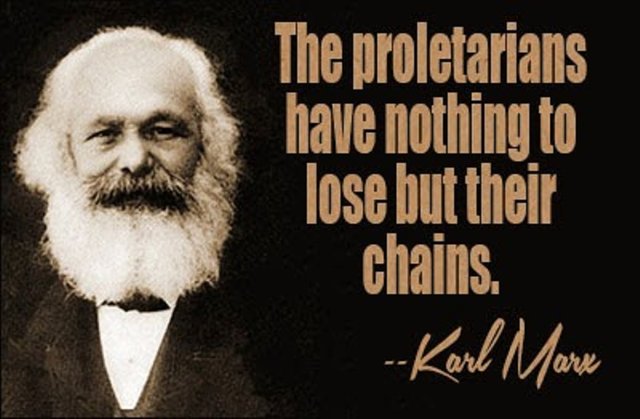
In The Manifesto of the Communist Party, Marx writes about a possible “perishing of classes” as the final result of the conflict between capitalists and workers. Does this mean that there is a possibility of the mutual extermination of classes and of humankind’s fall into a “long period of barbarism” (Marx)?
Ljubodrag Simonovic: The Last Revolution
Contents
- Life-creating mind against destructive mindlessness
- The nature of Marx’s critique of capitalism
- Marx’s conception of nature
- Capitalist exploitation of soil
- “Humanism-Naturalism”
- Marx and capitalist globalism
- The cosmic dimension of man
- “Alienation” and destruction
- Destruction of the body
- Homosexuality
- Capitalist nihilism
- Productive forces
- Dialectics and history
- The integration of people into capitalism
- Technique as myth: Zeitgeist fascism (Part 15a) •|• Technique as myth: Zeitgeist fascism (Part 15b)
- Contemporary bourgeois thought
- Politics as a fraud
- Contemporary critique of capitalism
- Bourgeoisie and proletariat
- October revolution
- Contemporary socialist revolution
- Revolutionary violence
- Vision of a future
- Notes
The Last Revolution -- Chapter Nineteen
Bourgeoisie and proletariat
(Translated from Serbian by Vesna Todorović/Petrović)
One of the most important ideas from The Manifesto of the Communist Party called into question by contemporary capitalism is that of capitalism’s being a “revolutionary” order and, consequently, the bourgeoisie’s being is a “revolutionary” class. According to Marx, the main historical “task” of the bourgeoisie is to enable man to gain control over natural laws and thereby free himself from his dependency on nature and exhausting physical labor, so as to enable him to develop his universal creative powers. The “revolutionary role” of the bourgeoisie is to create conditions for a “leap from the realm of necessity to the realm of freedom” (Engels). This is the main reason why Marx attaches primary importance to the development of productive forces. At the same time, the bourgeoisie is an exploiting class that becomes reactionary when capitalist private ownership starts to hinder the development of the productive forces. That is the right moment for a socialist revolution.
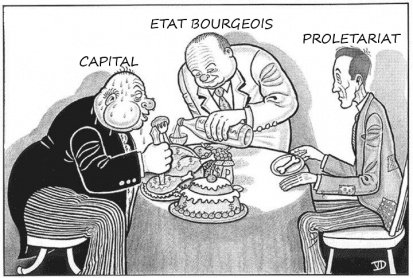
For Marx, the relationship between the bourgeoisie and the proletariat is dialectical. The bourgeoisie produces the proletariat as its antipode: the nature of the bourgeoisie conditions the nature of the proletariat. According to Marx, the revolutionary character of capitalism, which, above all, strives for the abolishment of man’s dependency on nature through the capitalist development of productive forces, offers workers the possibility of a revolutionary transformation of society. The conquered natural elements open the possibility of establishing a form of labor that will enable man to realize his creative powers and a social order that will put an end to man’s exploitation by others. For Marx, the most important task of the working class is to liberate humankind from inhuman living conditions and the class order. It is clearly stated in Marx’s “categorical imperative”: “… to overthrow all relations in which man is a debased, enslaved, forsaken, despicable being…” In The Holy Family, Marx writes: “When socialist writers ascribe this historic role to the proletariat, it is not, as critical criticism would have one think, because they consider the proletarians to be gods. Quite the contrary. Since the abstraction of all humanity, even of the semblance of humanity, is practically complete in the fully-formed proletariat; since the conditions of life of the proletariat sum up all the conditions of life of society today in their most inhuman and acute form; since man has lost himself in the proletariat, yet at the same time has not only gained theoretical consciousness of that loss, but through the no longer removable, no longer disguisable, absolutely imperative need — the practical expression of necessity — is driven directly to revolt against that inhumanity: it follows that the proletariat can and must free itself. But it cannot free itself without abolishing the conditions of its own life. It cannot abolish the conditions of its own life without abolishing all the inhuman conditions of life of society today which are summed up in its own situation.” [6]
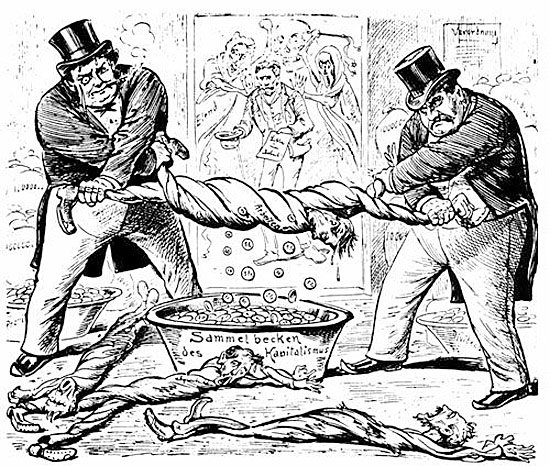
Marx points out “social” and “historical” causes that provoke workers to initiate the struggle against capitalism. Paramount among these are the immediate existential (economic) threat, the ruthless exploitation, the inhuman working and living conditions that jeopardize workers’ health, the humiliation to which they are regularly subjected… Ecological conditions do not count as the proletariat’s “living conditions”. The proletariat will not be “historically compelled” to stop the destruction of life on the planet and save humankind from obliteration. If Marx had regarded capitalism as an order that threatens nature and man as a human and natural being, then the awareness of the need to preserve life on the planet would have been the basis for shaping the workers’ class consciousness and a signpost in the struggle against capitalism. Marx does not mention capitalism’s destructive relation to nature as a possible precondition for a socialist revolution. His view of capitalism as a “revolutionary order” that marks the end of the “pre-history” of humankind and the creation of the “material conditions” for a new society (just like Engels’ view that capitalism creates the possibilities for a “leap from the realm of necessity to the realm of freedom”) indicates his relation to capitalism. Marx’s “categorical imperative”, which is the basis for the formation of workers’ class(self)-consciousness and as such is the supreme political principle, does not imply the ecocidal nature of capitalism and does not seek to develop in workers an emancipated (belligerent) ecological consciousness. Marx withheld the most important aspect of the workers’ class-consciousness: the true that capitalism is a destructive order and that capitalist class domination has an ecocidal character. According to Marx, capitalism reaches its end primarily by causing the economic crisis that occurs because of the productive relations (private ownership) becoming an obstacle to further growth of the productive forces, and not by the development of any processes that are detrimental to nature and man. The starting point in the struggle against capitalism is not its (potentially) destructive character, because the only force that will bring man to struggle is an immediate threat to his survival. These Marxian views are imbued with political realism. However, Marx’s indication that capitalism exhausts the soil and thus jeopardizes the survival of future generations (humankind) leads to the conclusion that, instead of “waiting” for the productive forces to come into conflict with the productive (proprietary) relations, workers should be moved to start a decisive fight against capitalism by the increasingly dramatic destruction of nature.
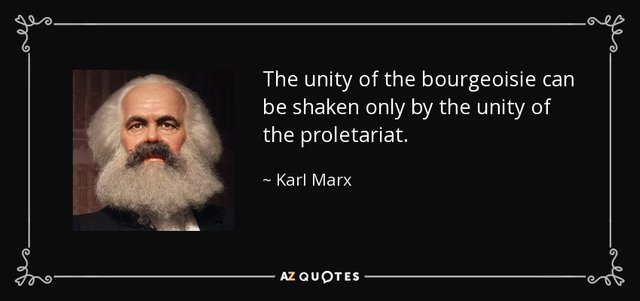
The capitalism’s development as an ecocidal order leads to society’s increasing fragmentation, not only along the lines of wealth but also as to the accessibility to protection against more and more lethal climate changes, the pollution of food, water, air… Class divisions within a society have long been defined by natural living conditions and the possibilities for protection against the consequences of environmental degradation. Those most affected are on the lowest rung of the social ladder and on the margins of “globalization”. Workers and their children are more directly impacted by both the economic crises of capitalism and global ecological degradation. Indeed, in his Early Writings, Marx indicates that contaminated water and air have become the workers’ way of life, but he has in mind the daily existence of workers in factories and mines, as well as in the apartment blocks built in the immediate vicinity of industrial and mining sites, and not the planet-wide ecological pauperism brought about by the obliteration of nature as a life-generating whole and the production of a technical world.
Capitalism has a more and more dilatory effect on life, while it produces technical means by which capitalists and the bourgeois class, as the cornerstone of “consumer society”, can create artificial living conditions and thus (temporarily) avoid the immediate injuries of an ever more deadly environmental degradation. In addition, the owners have the privilege to consume food and water that are not as polluted as the food and water consumed by the “masses”; to move from one “exclusive” place to another whenever it suits them; to use special medications and health treatments; to replace organs if necessary; to ensure “immortality” by having their bodies frozen after death until the invention of technical means to “revive” them; etc. Marx’s view that in the struggle against capitalism “the proletarians have nothing to lose but their chains” and “they have a world to win” indicates workers’ existential deprivation. In a “consumer society”, workers can lose a degenerated and destructive quality of life and, likewise, the destructor’s role capitalism compels them to assume. Workers should fight against capitalism because they could lose something of vital importance: a world which makes life possible and, consequently, their own lives, the lives of their children, of their friends, of their nation, of all humankind… The working class can no longer be merely a libertarian class; it must become a life-creating class. Man’s becoming a totalizing libertarian and life-creating being is the only possible existential and essential alternative to this destructive capitalist totalization of the world. The life-creating principle should become the engine of revolutionary practice. This conditions the nature of the contemporary socialist revolution. It does not appear merely in the essential, but, more importantly, in the existential sphere.
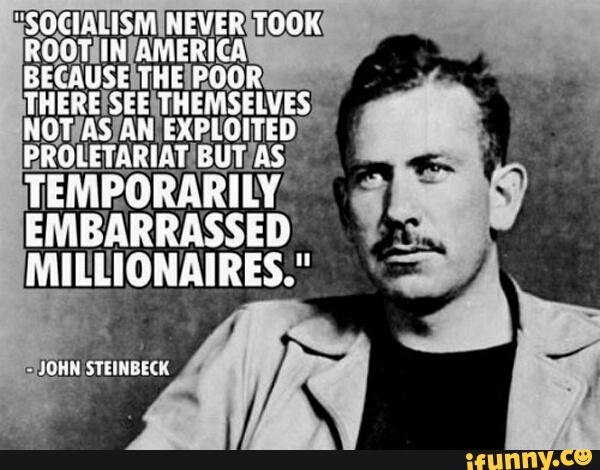
In The Manifesto of the Communist Party, Marx writes about a possible “perishing of classes” as the final result of the conflict between capitalists and workers. Does this mean that there is a possibility of the mutual extermination of classes and of humankind’s fall into a “long period of barbarism” (Marx)? Here also Marx does not see the destructive potency of capitalism. The nature of the capitalist class is conditioned by the nature of capitalism as a totalitarian destructive order. In view of that, every historical analogy with the current perishing of classes is out of place. Barbarism gave birth to civilization, while capitalistically conditioned barbarism threatens the very survival the life on Earth. Marx overlooks the fact that, in its essence, capitalism is an ecocidal barbarism, which has a technical form, and that capitalists are ecocidal barbarians.
The crisis of today’s world is likewise a crisis of the proletariat as a revolutionary agent. In considering the current state of the working class in the developed capitalist countries, the ideologues of capitalism seek to “redefine” the nature of the working class by depriving it of its class-consciousness, which in contemporary terms implies not only a libertarian but also an existential self-consciousness. The conformist behavior of a large part of the working class in the developed capitalist countries is not the result of the “disappearance of the working class”, but rather of the workers’ integration into capitalism as the working-consuming “mass” and a systematic analysis by the bourgeoisie of the workers’ class organization, class struggle and class-consciousness. Workers’ conformism is not a self-propelled process with a fatalistic character; it is the consequence of bourgeois class domination. The fact that capitalists make enormous efforts to keep workers in capitalism’s ideological “bell jar”, while at the same time doing away with socialist (communist) theories that call for a struggle against capitalism and offer the possibility of a humane world, indicates that this is not the workers’ final integration into the capitalist order, but only a temporary situation. Capitalism’s propaganda machinery seeks to hide the most important point: a fear of workers as a potential revolutionary factor has always been a distinctive characteristic of capitalist political practice.
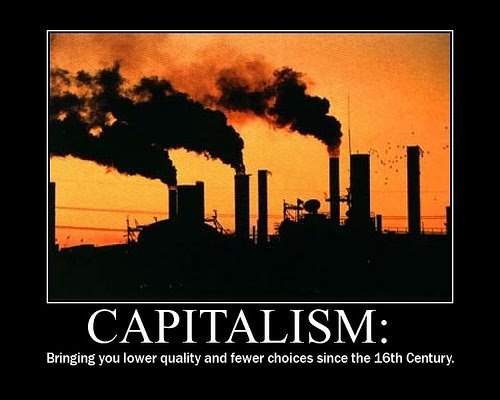
As far as the contemporary workers’ movement is concerned, Fredrick Jameson argues that Marx’s Capital “is not a book on workers, but on unemployment. Capital, ultimately, shows how capitalism produces the so-called reserve army of labor, how the very structure of capitalism produces unemployment. I think that this aspect of Capital has not been properly considered, and today it is of utmost importance. It is related to technology, investment in technology that reduces the number of the employed, and it is one of the lessons from Capital that we should learn. Today, when the workers’ movement has weakened, the key question is not how to organize workers, but how to organize the unemployed – there lies the possibility of a global change.” [27] Capitalists have long managed to divide labor into “blue-collar” and “white-collar” workers, and turn the latter into their “allies” in the capitalist struggle for survival. Jameson’s idea creates new categories of workers – the “employed” and the “unemployed”, where only the former are of use to the capitalists. A genuine class organization of workers involves their overall organization regardless of whether they are employed or unemployed. Moreover, the jobs of those who are employed are not guaranteed: all workers suffer from existential uncertainty. They are reduced to a commodity on the labor market, and this is what defines their concrete social position and existence. Notably, Jameson also does not speak of the ecocidal nature of capitalism nor of the consequent awareness of the importance of the struggle for the survival of life on the planet as the most important segment of the workers’ class-consciousness. Jameson claims that the “very structure of capitalism produces solutions for the problems it encounters, which then create new problems that are to be solved, as part of the dynamic movement of capitalism, itself”. (28) This thesis makes concrete historical sense only if we don’t ignore the fact that capitalism has become a totalitarian destructive order. Tendencies of the development of the contemporary world indicate that capitalism can “solve” the problems it creates only by abolishing elementary human and civil rights, the uppermost being the right to life. The concept of the “golden billion”, according to which a majority of humankind is to be eliminated so that the “elite” population in economically advanced capitalist countries can survive, indicates the way in which the “structure of capitalism produces solutions” for the problems it creates. The “dynamic movement of capitalism” is actually its dynamic charge toward the obliteration of global life.
The expression “oppressed” (like the Negri’s “multitudes”, Reich’s “little man”, Standing’s “precariat”, to cite just a few) dilutes the concept of the working class, as well as ideas like class-consciousness, class organization, class struggle and socialist revolution. Those expressions are the result of the proletariat’s degenerated class-consciousness and the endeavor to delude the working class into conforming to contemporary capitalism. The social theory developed by Marcuse, along with Adorno and Horkheimer, is typical of how a critique of capitalism that neglects the working class loses its concrete historical and changing potential and becomes a politically sterile theory. The fact that the industrial (“traditional”) proletariat is diminishing in size does not change the essence of classes and class struggles; the change is only in the forms of struggle for acquiring and developing workers’ class-consciousness, as well as the forms of struggle against capitalism. The propaganda of the right persistently tries to abolish the terms “capitalists” and “workers” (imposing on the public the terms “employers” and “employees”) in order to destroy the workers’ class-consciousness and thus deprive the only potential force that can abolish capitalism and create a humane world of its leadership. The expression “oppressed” is close in meaning to the term “despised” from The Internationale, and it is used by Marx and by Marxist theoreticians; they are, however, aware of the essential difference between “the oppressed” and “the working class”. The term “oppressed” has a historical and political justification only if the working class is a central and unifying category. In addition, to insist on “the working class” also means to insist on the emancipatory legacy of workers’ uprisings and revolutions, which is of utmost importance for the development of workers’ historical self-consciousness, without which there is no genuine socialist revolution. “Multitude”, “precariat” and similar expressions deprive the working class of its historical (self)consciousness and revolutionary legacy. The bloodstained banner of freedom was held up in 1886 by workers from Chicago and not by the “oppressed”. The same goes for Heine’s “Silesian weaver” and Svetozar Markovic’s “working man”.
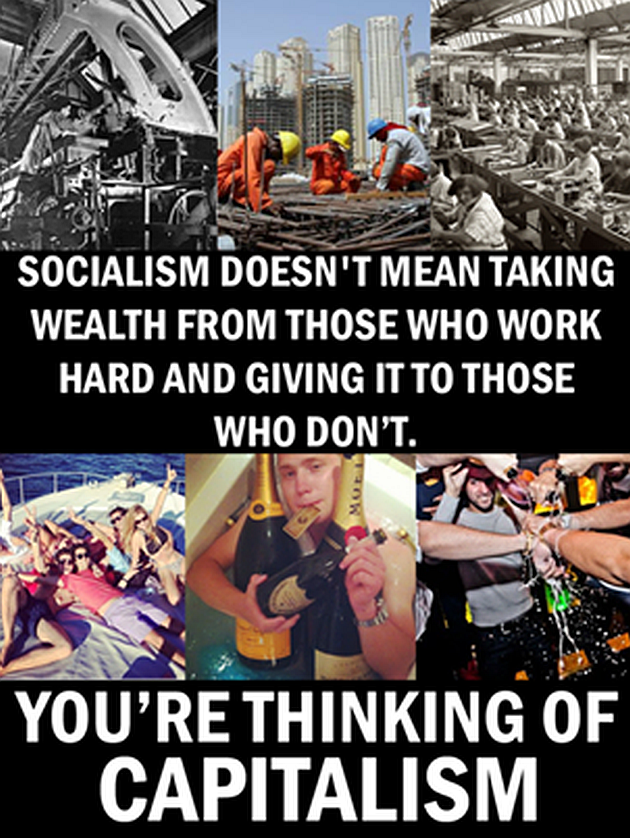
The question of the working class is the central concern in Marx’s dialectics of history as his analysis is founded on labor as the basic means through which man earns a living, liberates himself from his dependency on nature and develops his creative powers. In other words, the working class is a specific group of the oppressed and, as such, is a concrete historical antipode to the capitalist class. It is a class that creates social wealth through labor and thus becomes capable of gaining control of the means of production and governing social life. To proclaim students, women, immigrants, and others deprived of their rights, to be potential agents of a socialist revolution is not only a “technical consideration”, it substantially changes Marx’s concept of revolution. The working class, according to Marx, does not enter the political scene under capitalism. It is created by capitalism as its antipode and, from the class in itself, becomes a class for itself on the basis of the development of the productive forces and a long and strenuous historical fight for workers’ civil and human rights. In the course of that struggle, the working class became capable of fulfilling its historical task: the abolishment of capitalism and the liberation of humankind from oppression by taking control of the entire process of social reproduction. It is no accident that Marx sees the authentic and single possible space for a genuine socialist revolution in advanced capitalist societies.
For Marx, the workers’ relation to nature is mediated by the fall in the rate of profit and wages, that is, by their economic impoverishment due to the very nature of the capitalist mode of production, an inevitability. In his Economic and Philosophic Manuscripts, Marx argues that “the worker becomes all the poorer the more wealth he produces”, i.e., “the worker becomes an ever-cheaper commodity the more commodities he produces”. Under developed capitalism, an increase in the workers’ purchasing power has become conditio sine qua non for the survival of capitalism. One of the most distinctive features of contemporary capitalism is not the economic impoverishment of the proletariat, but the proletariat’s participation in the development of “consumer society”. “Consumer society” is a way of resolving the crisis of hyper-production by absorbing workers into the sphere of destructive capital reproduction. Turning the working class into members of the “middle class” by way of a higher consumer standard is, actually, the way in which capitalism absorbs workers into its existential and value orbit, making them its accomplices in the destruction of nature and humankind. Workers are not integrated into capitalism through their participation in the ownership of the means of production, but by being included in the destructive mechanism of capitalist production and the destructive mechanism of consumption. Turning workers into “consumers” is one of the most lethal characteristics of contemporary capitalism, which called into question Marx’s vision of the future of capitalism and the idea of a socialist revolution. A majority of the working class in advanced capitalist countries has become part of the generation that has destroyed the environment to such an extent that it is highly doubtful whether humankind will ever be able to reset the global ecological balance, without which it is destined for disaster.
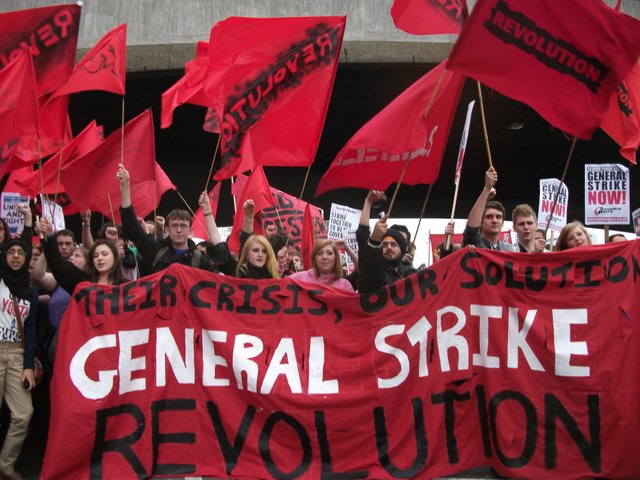
According to Marx, workers create social wealth by their labor, the exploitation of which gives them the moral right to fight against the ruling order. As capitalism becomes a totalitarian destructive order, the basis for determining workers’ class affiliation and their social position is no longer their labor’s role in the creation of social wealth, but the role of the capitalists’ efforts that bring about the destruction of nature and man. Workers are provided with their immediate livelihoods in the form of wages paid for their destroying the foundations of humankind’s survival. Production has turned into the destruction of nature and man, with workers turned into consumers who, by destroying commodities, create a new space in the market and accelerate the process of capital accumulation. This is the political essence of “consumer society”: transformation of workers from a potentially revolutionary force to a destructive force. Instead of increasing, by virtue of labor, the likelihood of humankind’s survival and expanding the horizons of freedom, man produces capitalism, which means that he produces the destruction of life. The fact that workers, out of necessity, hire themselves out to the capitalist does not absolve them of the responsibility for their contribution to the destruction of the planet. Without a struggle against capitalism, fighting to secure a job and increase one’s wages is actually a fight to destroy the world.
A “realistic” political platform is not based on what should motivate workers, but on what will mobilize workers to fight against capitalism. And that is the realization of an immediate existential threat. Capitalism, however, uses technical modalities to alleviate the effects of ecological changes, degenerates man and absorbs him into its living and ideological orbit and thus stops him from confronting the lethal consequences of capitalism’s development – and this is the greatest threat to humanity’s survival. At the same time, capitalism mediates between man and the world and marginalizes destructive processes through a “welfare state”, a consumer way of life, an entertainment industry, etc… Man will immediately and completely feel the consequences of the capitalist annihilation of nature only when it is no longer possible to prevent a global disaster.
If the concept of capitalism as a destructive order had become an integral part of workers’ class-consciousness when the European working class emerged and started to develop its political consciousness, would modern history have taken a different course? Would capitalism, in that case, have managed to integrate workers into its existential and ideological orbit by turning them into a vehicle for obliterating both nature and man?
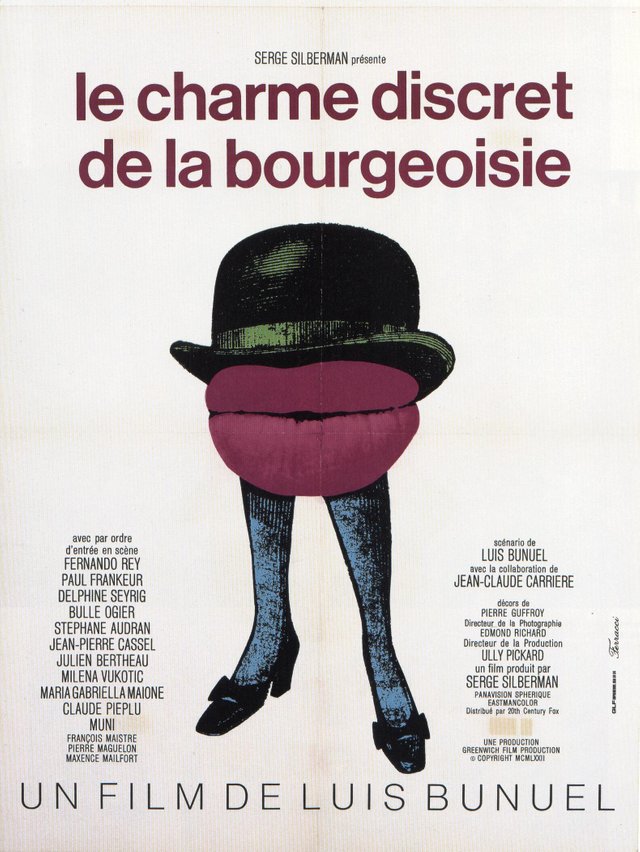
The Last Revolution (Part 18) << Previous • Part 19 • Next >> The Last Revolution (Part 20)
I read this post and it's very interesting :)
Great job..I follow you now :D
Thanks, djsonic, it is just one chapter of a really great book by Ljubodrag Simonovic. I have to post three more chapters to complete a book, but you can read all previous chapters on the links of the contents at the beginning of text.